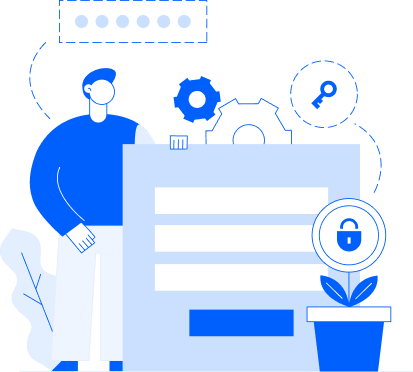Why Spreadsheets Are Killing Your
HR Team’s Productivity
The False Comfort of Familiar Tools
For decades, spreadsheets have been the go-to solution for HR professionals managing everything from payroll and leave tracking to performance reviews and recruitment pipelines. They offer a sense of control and flexibility, are cost-effective, and are easily accessible across departments. However, in 2025, continuing to rely on spreadsheets for complex human resource management tasks is no longer sustainable. As businesses grow and employee needs evolve, the cracks in spreadsheet-based processes become increasingly apparent. What once seemed like a convenient tool has turned into a hidden drain on time, accuracy, and productivity.
While spreadsheets can be useful for organizing small sets of data, they were never designed to function as a comprehensive HR management system. Yet many HR teams still rely on them out of habit or budgetary constraints. This approach might work temporarily in small startups or organizations with limited headcount, but it quickly becomes a bottleneck as the workforce scales. The illusion of simplicity fades when teams find themselves juggling multiple versions of the same document, dealing with formula errors, or trying to locate critical data buried in dozens of tabs and files. This blog explores how relying on spreadsheets limits HR efficiency and scalability. It offers smarter alternatives to boost team productivity.
Human Errors: A Costly and Inevitable Risk
One of the most significant disadvantages of using spreadsheets for HR functions is the risk of human error. Even the most experienced HR professionals can make mistakes when manually entering or updating data. A single misplaced decimal, an incorrect date, or a broken formula can lead to serious consequences—mispaid salaries, inaccurate time tracking, missed compliance deadlines, or even legal exposure. In high-stakes environments, precision matters, and spreadsheets offer no safeguard against errors.
Unlike automated systems that validate inputs and enforce data integrity, spreadsheets depend entirely on manual input and user vigilance. In multi-user environments, accidental overwrites, version conflicts, and inconsistent formatting become common. Without built-in error detection or audit trails, it’s nearly impossible to trace the origin of a mistake once it occurs. These risks compound over time, leading to a culture of rechecking and second-guessing—activities that erode productivity and trust within the HR team.
Fragmentation and Lack of Integration
Modern HR functions require seamless integration with other business systems such as payroll, accounting, recruitment platforms, performance tools, and compliance trackers. Spreadsheets, by design, are siloed and static. They do not sync with external systems in real time, and they cannot handle dynamic updates without complex scripting or add-ons. As a result, HR professionals must constantly export and import data, cross-reference different systems, and manually update multiple records. This creates a fragmented workflow riddled with inefficiencies.
This fragmentation also means that information is not readily accessible or usable across departments. Managers may have to request updates from HR, finance teams may work off outdated data, and employees may not have clarity around their own records. In contrast, centralized HR management systems offer real-time data access, automatic syncing, and customizable dashboards that empower every stakeholder. The inability of spreadsheets to support integration limits agility and slows decision-making, especially in fast-paced or growing organizations.
Key takeways
- Spreadsheets create siloed workflows and require time-consuming manual updates.
- Lack of integration leads to data inconsistencies, delays, and poor cross-department collaboration.
- Modern HRMS platforms offer real-time syncing and centralized data for smarter, faster decisions.

Competing for and Retaining Top Talent
Attracting and retaining top talent remains a consistent challenge, but in 2025, it has taken on new dimensions. Employees, especially younger generations like Millennials and Gen Z, are increasingly selective about where they work. They are looking for employers who align with their values, provide meaningful work, and offer growth opportunities. Competitive salaries and benefits are still important, but they are no longer sufficient. Organizations must focus on building strong employer brands that highlight purpose, inclusivity, and professional development. The competition for skilled professionals, especially in fields such as technology, data science, and digital marketing, is fierce. HR teams must invest in thoughtful recruitment strategies that reflect company culture and values while also offering candidates a clear path for advancement. Internal mobility programs, mentorship opportunities, and continuous learning platforms can enhance employee loyalty and reduce attrition.
The Need for Continuous Upskilling and Reskilling
In the same vein, the need for upskilling and reskilling is more critical than ever before. The rapid pace of technological innovation is rendering certain job roles obsolete while creating new ones at breakneck speed. Artificial intelligence, machine learning, and automation are reshaping the workforce, and employees must evolve to keep pace. In this environment, HR professionals must ensure that the workforce remains competitive and future-ready. Traditional one-time training models are no longer effective. Instead, learning must become an ongoing, personalized process integrated into everyday work. HR leaders can champion continuous learning by collaborating with educational platforms and leveraging integrated learning management systems. Providing employees with access to bite-sized, on-demand training modules allows them to acquire new skills without disrupting productivity. Furthermore, fostering a culture that celebrates learning and development encourages employees to take initiative in their growth.
Using HR Data for Smarter Decision-Making
One of the defining characteristics of HR in 2025 is the reliance on data-driven decision-making. While HR has historically been viewed as a people-focused function, today’s environment demands the same level of analytical rigor applied in finance, marketing, and operations. HR teams are now expected to measure employee engagement, turnover rates, hiring efficiency, and more—then use that data to inform strategy. However, many HR departments still struggle with fragmented systems, inconsistent data collection, and manual reporting. To make meaningful progress, organizations must invest in integrated HRMS platforms like Synclo that centralize data and provide actionable insights. With the right tools, HR can move from reactive to predictive, identifying trends before they escalate and making evidence-based decisions that align with organizational goals. Dashboards, analytics reports, and AI-driven recommendations are essential tools for today’s HR leader.
Key takeways
- HR decision-making in 2025 must be powered by real-time, centralized data and analytics.
- Integrated platforms like Synclo help eliminate data silos and support evidence-based strategies.
- Predictive insights and AI tools enable HR to be proactive, not just reactive.

Meeting Global Compliance and Regulatory Demands
Generational diversity is another layer of complexity in the modern workplace. In 2025, companies are home to four or even five generations working side by side—from Baby Boomers and Gen X to Millennials and Gen Z. Each group brings different communication styles, values, and expectations to the table. While this diversity can enrich workplace culture, it can also lead to misunderstandings and friction. HR’s role is to bridge generational gaps through education, empathy, and thoughtful program design. Facilitating cross-generational mentorships, offering flexible communication tools, and personalizing rewards and recognition can help foster mutual respect. Recognizing and celebrating these differences as strengths rather than challenges can lead to a more dynamic and collaborative workplace.
Managing a Multigenerational Workforce
Another major challenge HR faces in 2025 is staying compliant with constantly changing labor laws and regulations. With the rise of remote and international workforces, companies are now operating across multiple legal jurisdictions. Each region may have different rules regarding employee classification, taxation, health and safety, and data protection. HR teams are responsible for navigating this complex landscape while avoiding legal risk. Failure to comply can result in hefty fines, lawsuits, and damage to the organization’s reputation. HR professionals must stay informed about changes in employment law and maintain meticulous records. Automating compliance processes through a robust HRMS can minimize errors and reduce administrative burden. Regular audits, policy updates, and legal consultations ensure that organizations remain in good standing while maintaining employee trust.
As HR enters 2025, leaders face challenges like managing hybrid workforces, supporting mental health, ensuring DEI, and using data for smarter decisions. Success lies in embracing agility, technology, and a people-first mindset. Synclo stands out as the all-in-one HRMS that equips HR teams to adapt, lead, and thrive—bridging gaps, streamlining compliance, enhancing employee experiences, and turning HR into a future-ready strategic powerhouse.
Advancing Diversity, Equity, and Inclusion (DEI)
Inclusion and diversity continue to be at the forefront of HR discussions in 2025. More than just a moral imperative, diversity, equity, and inclusion (DEI) are key drivers of innovation, engagement, and performance. However, many organizations still struggle to move beyond surface-level initiatives. Tokenism, lack of accountability, and insufficient measurement tools can hinder genuine progress. For HR teams to be effective DEI leaders, they must embed inclusivity into every aspect of the employee experience—from recruitment and onboarding to performance reviews and leadership development. This involves setting measurable diversity goals, conducting bias training, and creating safe spaces for dialogue. Transparent reporting on DEI progress can build trust among employees and signal to external stakeholders that the organization takes inclusivity seriously. Partnering with community organizations and offering equitable opportunities for advancement also helps cultivate a workplace where all individuals can thrive.
Key Takeaways:
- DEI must be woven into the entire employee lifecycle—not treated as a standalone initiative.
- HR should implement measurable goals, regular bias training, and transparent DEI reporting.
- Inclusive partnerships and equitable growth opportunities build trust and lasting change.

Designing Exceptional Employee Experiences
Equally important in 2025 is enhancing the overall employee experience. In a competitive job market, how employees perceive their journey within a company—from recruitment to exit—can significantly impact retention and reputation. A poor onboarding process, for instance, can leave new hires disengaged from day one. Conversely, a smooth and welcoming experience can create lasting loyalty. HR professionals must take a design-thinking approach to the employee lifecycle, mapping out each touchpoint and identifying areas for improvement. Technology plays a vital role in creating frictionless experiences. Tools that automate routine HR tasks, facilitate real-time feedback, and provide easy access to resources empower employees and reduce frustration. When employees feel seen, heard, and supported, their productivity and satisfaction naturally rise.
Preparing for the Future of Work
Finally, HR must prepare for the uncertainties of the future. The world of work is in a state of continuous transformation, and HR leaders must adopt an agile mindset to navigate it. Whether it’s the growing influence of the gig economy, the emergence of AI in recruitment, or the impact of climate change on business operations, adaptability is the most valuable trait an HR department can cultivate. Scenario planning, strategic workforce forecasting, and investing in future-ready skills ensure that the organization is not just reacting to change but leading it. HR is no longer a back-office function—it is a strategic partner in shaping the organization’s vision and guiding it through complexity with resilience and foresight.
Embracing the Future with Confidence
In conclusion, the HR challenges of 2025 are complex, interconnected, and evolving. But with each challenge comes an opportunity for innovation and growth. By embracing technology, prioritizing people, and aligning HR strategies with organizational goals, companies can turn these challenges into strengths. Platforms like Synclo are designed to empower HR professionals with the tools they need to meet these demands head-on. In a world where talent is the ultimate competitive advantage, strategic and responsive HR leadership is not just important—it’s essential.
Why Synclo Is the HRMS Built for 2025 and Beyond
As the HR landscape continues to evolve, organizations need a platform that is agile, intelligent, and deeply human-centric. Synclo rises to meet every challenge discussed—whether it’s managing hybrid teams, supporting mental health, enhancing DEI, driving data-informed decisions, or ensuring compliance in a global workforce. With its all-in-one HRMS suite, Synclo offers seamless integration of recruitment, performance management, learning, analytics, and compliance tools—allowing HR teams to lead with strategy and empathy. In a time when precision, personalization, and agility define successful HR, Synclo isn’t just a tool—it’s your partner in building a resilient, future-ready workforce. Make the smart move: choose Synclo and empower your HR team to lead change with confidence.


















